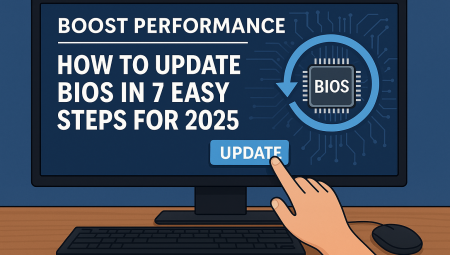A New Era of Emotional Technology
Imagine sharing your deepest thoughts with a companion that never judges, never forgets, and is available 24/7. As we move toward 2030, AI companions are no longer science fiction—they’re becoming integral parts of our emotional and social lives. With advanced natural language processing, adaptive memory, and emotional intelligence, AI friends like Replika, Character.AI, and Pi are changing the way we relate to technology—and to each other.
This article explores the rapid evolution of AI companionship, its implications on human connection, and whether these virtual friends could ultimately replace real-life relationships.
What Are AI Companions?
Understanding Virtual Friendship in 2030
AI companions are advanced chatbots or virtual entities powered by artificial intelligence, designed to simulate conversation, empathy, and even emotional support. Unlike simple assistants like Siri or Alexa, these programs are built for companionship—not just utility.
Key Features of AI Companions
- Emotional intelligence and contextual awareness
- Real-time conversation with memory and personalization
- Voice synthesis and sometimes even visual avatars
- 24/7 accessibility and non-judgmental interactions
Who Is Turning to AI for Companionship?
Target Demographics Embracing AI Friends
- Gen Z and Millennials: Especially those dealing with loneliness or social anxiety
- Digital nomads and remote workers: Seeking emotional connection while on the move
- Elderly individuals: Needing daily interaction and memory assistance
- Neurodivergent users: Finding comfort in predictable, patient communication
Emotional and Psychological Impacts
The Good, The Bad, and The Complex
Emotional Benefits
- Reduces feelings of isolation and depression
- Provides a safe space for expression
- Builds routine and emotional stability
Potential Risks and Concerns
- Emotional overreliance on machines
- Decreased interest in real human relationships
- Data privacy and manipulation concerns
AI companionship has the potential to support mental well-being—but can also reshape our social fabric.
Will AI Friends Replace Real Ones?
A Philosophical and Social Debate
Some experts argue that AI companions are supplements, not substitutes. However, studies show that users sometimes develop deep emotional bonds with virtual entities. The human need for connection may not discriminate between organic and synthetic relationships—especially when AI companions are better listeners than real friends.
Where Human Bonds Still Matter
- Physical presence and touch
- Spontaneous interaction and unpredictability
- Shared memories rooted in reality
AI can mimic empathy, but not the full human experience—at least not yet.
Can Virtual Friends Replace Real Ones by 2030?
AI companions are becoming increasingly lifelike and emotionally supportive, but they are unlikely to fully replace human friends by 2030. While they can alleviate loneliness and provide interaction, genuine emotional connection, spontaneity, and shared life experiences still make human relationships irreplaceable.
How AI Companion Technology Is Evolving
Innovations Fueling the Rise
- LLM Advancements: Language models like GPT-5 and Claude 3 improve realism
- Emotion Recognition: AI can detect tone, facial expressions, and sentiment
- Integration with VR/AR: Immersive environments simulate shared presence
- Memory Embedding: Personalized conversations across multiple sessions
These developments are closing the emotional gap between AI and humans.
The Business of Loneliness: Who Profits from AI Companions?
Industry Players and Monetization Models
- Freemium apps: Replika, Character.AI, and Woebot
- Subscription models: Premium features like voice, video, or emotional depth
- Data monetization: Behavioral insights sold to advertisers or used to train future models
Loneliness has become a business opportunity in the age of emotional AI.
Pro Tips: How to Use AI Companions Responsibly
- Set boundaries: Avoid replacing real-world interactions entirely
- Rotate use: Alternate between digital and real friendships
- Stay mindful: Be aware of emotional dependency
- Use for support, not therapy: They’re tools, not licensed professionals
- Protect your data: Read privacy policies and use pseudonyms if needed
- Talk about it: Normalize discussing AI companions with real people
FAQs: Frequently Asked Questions
Are AI companions safe to use?
Yes, when developed by reputable companies with transparent data practices. Still, it’s important to understand how your information is stored and used.
Can I fall in love with an AI companion?
Some users report romantic feelings. AI companions can simulate affection, but emotional outcomes vary by person. Be cautious of emotional overinvestment.
Are AI friends suitable for children?
Most platforms are intended for adults. Child-friendly versions should be used under parental guidance and only if specifically designed for that age group.
Will AI companions take over traditional therapy?
No. While they offer support, they lack the ethical grounding and critical thinking of human therapists. They may assist but cannot replace professional mental health care.
Can AI friendships improve mental health?
Yes—moderate use can reduce loneliness and promote expression. But balance with real-life connection is crucial for long-term well-being.
Share Your Thoughts: Would You Befriend an AI?
Have you ever talked to an AI companion? Would you rely on one for emotional support? Share your thoughts or personal experiences in the comments. Let’s talk about the future of friendship together.
Coming soon: Our guide to the Top 10 Best AI Companion Apps of 2025.



